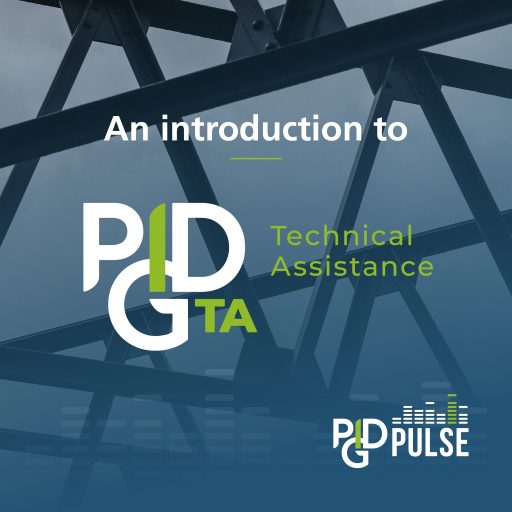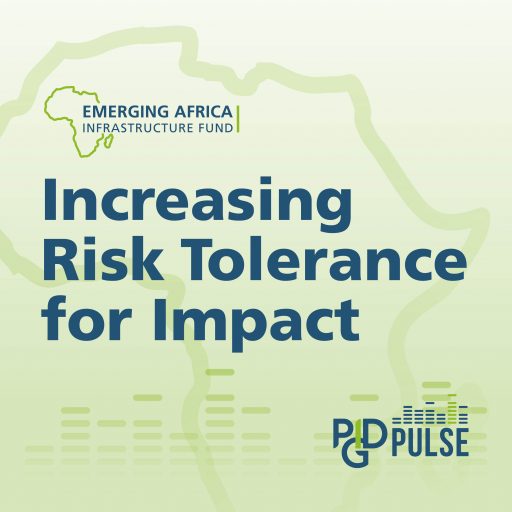
#8 An introduction to PIDG Technical Assistance
Many ‘first of its kind’ projects can’t get off the ground, despite their potential to create real impact. Particularly in low and middle income settings, infrastructure projects facing unusually high development costs may not be deemed financially viable. And that’s where PIDG Technical Assistance comes in, to bridge the financing gap and meet a range of needs associated with the infrastructure project development cycle.
In this episode members of the PIDG TA team explain why technical assistance is needed and how it works both on the government and project side. And they explore three projects that have benefited from PIDG TA; The Nairobi Streets Lighting Project, Pakistan K-Electric and Bonergie Irrigation Phase II.
To find out more about PIDG’s approach to technical assistance, visit our website.
Latest Episodes

Increasing Risk Tolerance to Drive Impact: #3 Implementing PPPs in frontier economies
Welcome to the third episode of Increasing Risk Tolerance to Drive Impact – a podcast series from the Emerging Africa Infrastructure Fund (EAIF), a Private Infrastructure Development Group company – exploring ways to develop transformative infrastructure in underserved geographies across Africa.

#19 PIDG Sustainability and Impact Report
As the climate crisis continues to accelerate, sustainable development and poverty reduction hinge on our ability to adapt to the changing climate, protect and restore the natural environment, and rapidly reduce global emissions. At PIDG, we’ve made it our mission to address these challenges head-on while ensuring our infrastructure projects meet the needs of those who depend on them most.

#18 Bringing a Pioneering Maritime Freight Service to East Africa
The M.V. Mpungu is a first-of-its-kind freight vessel set to revolutionise the maritime industry in East Africa. Owned by East Africa Marine Transport (EAMT), it will operate across Lake Victoria, between Uganda and Tanzania, cutting journey times, reducing emissions and creating jobs. Supported by PIDG’s development arm, InfraCo Africa, the vessel will improve standards of transport infrastructure, save the economy millions of dollars and boost trade in the region.

#17 How Women Benefit From PIDG Investments
Whether it’s providing electric vehicles to women who otherwise have to walk massive distances to provide for their families, or increasing access to safe and adequate drinking water for rural communities, PIDG has a number of investments that directly impact and improve the lives of women. Across Africa and Asia, PIDG doesn’t just consider how women are impacted by its projects, it also strives to empower them.